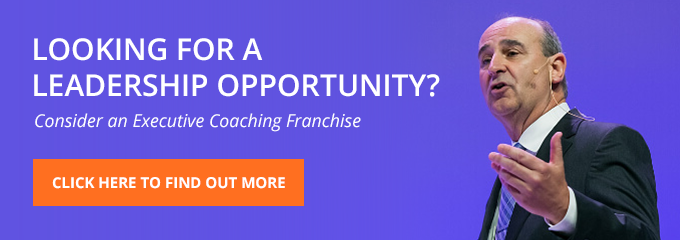October 31, 2022 |
Category: Blog, Intelligent Leadership
Leadership is a challenge that leaders undertake intentionally. It requires them to leave their comfort zones and navigate a series of steppingstones as part of their journeys. Leadership coaching can guide leaders through these journeys, helping them find answers and grow into the leaders they can be.
In life, we are all leaders to some degree. We lead ourselves for better or worse, either achieving our aspirations or falling short and allowing life to plow through our dreams. Often, we lead others. That is when our leadership abilities become subject to scrutiny.

Leadership is a challenge. It’s up to us to accept it or turn it down.
In the matter of leading ourselves, we don’t have a choice. No one else will assume leadership over our lives, and no one else will take responsibility for the outcomes we create. When we lead others, however, we have choices. We can choose to share our leadership with followers or not. We must make the intentional, internal decision to lead. we must consider ourselves suitable leaders that are capable of achieving better results.
As a leadership coaching professional, I’m aware that accepting and seeing yourself as a leader is a process. Leadership coaching aims to guide would-be leaders through this process, so they discover their strengths and weaknesses as they go.
In literature and popular culture, the journey of leadership is a leitmotif. The hero makes the conscious decision to leave his/her comfort zone. Then, having cleared the steppingstones to leadership, he/she returns triumphant and changed. The change that occurs during this process of growth turns the hero from a naïve infant into a valuable member of the community and a source of inspiration for others: a true leader.
I have identified several steppingstones a leader must internally navigate to grow into a successful and inspirational leader capable of motivating and empowering others.
Your inner core is the source of your leadership and leadership behaviors. It all starts and ends there. As executive coaching professionals, we aim to drive would-be leaders in, effect change in their inner cores, and then drive them out, allowing the changes to permeate their behaviors.
Understanding Clearly What You Want to Achieve
Before you set a core purpose for your organization, you must clarify your core purpose as a leader. Knowing what you want to achieve helps you align your resources and invest your efforts meaningfully. Clarity of purpose also allows you to:
- Decide where and how to invest your time
- Make the right choices
- Be intentional in your life and leadership
- Move toward your goals and destinations

Know where you’re aiming.
Deciding Which Type of Leader You Want to Be
As a leader, you’ll build a reputation whether you like it or not. You can control what kind of reputation you build, however. Are you going to be a leader who gets the job done and doesn’t care about others? Or are you going to be an inspirational and empowering figure that helps others succeed and build careers of their own?
Leaders Always Have the Last Words on Everything, Don’t They?
Some leaders may figure that since they’re at the helm of their organizations, they should have the last word on everything. Let go of this idea. If you have the last word on everything, you come across as a poor listener. Furthermore, you don’t accomplish anything by dominating every discussion. It’s much more leader-like to open yourself to feedback and seize every opportunity to innovate and improve.
Playing to Your Strengths
Leaders may feel they have to handle everything to ensure the success of their organizations. Often, they handle chores they should delegate to others. Identify your strengths and do jobs at which you’re good. Delegate those you can barely handle to people who do them better.
Letting Others Play to Their Strengths
Like you, team members have unique talents and strengths. Identify what they do best and let them shine in the roles that fit them.
Business coaching can tell you how to run your organization, but executive coaching is more personal. It helps you discover your leadership strengths and address your weaknesses. It guides your steps on your leadership journey.

Back to blog